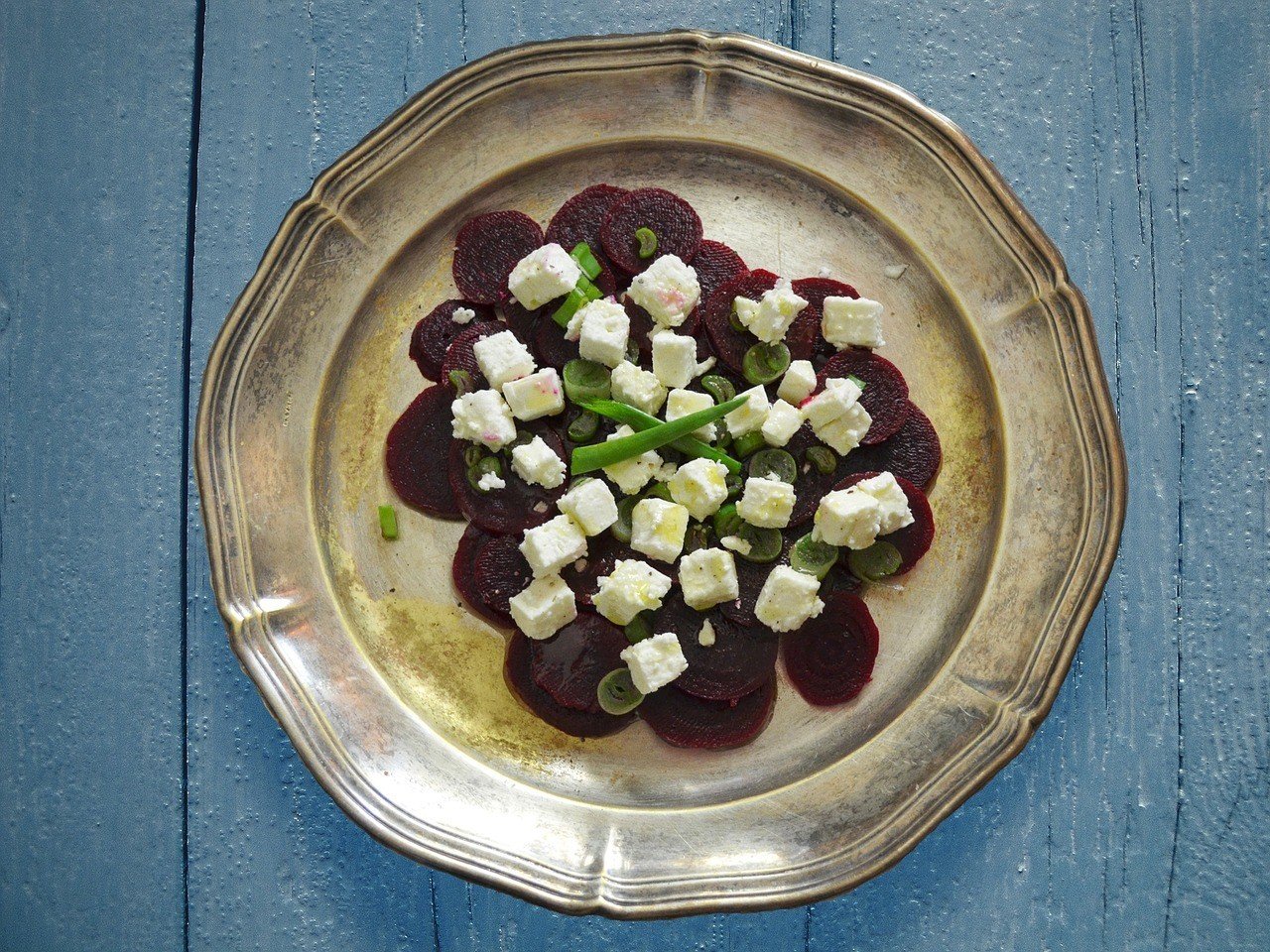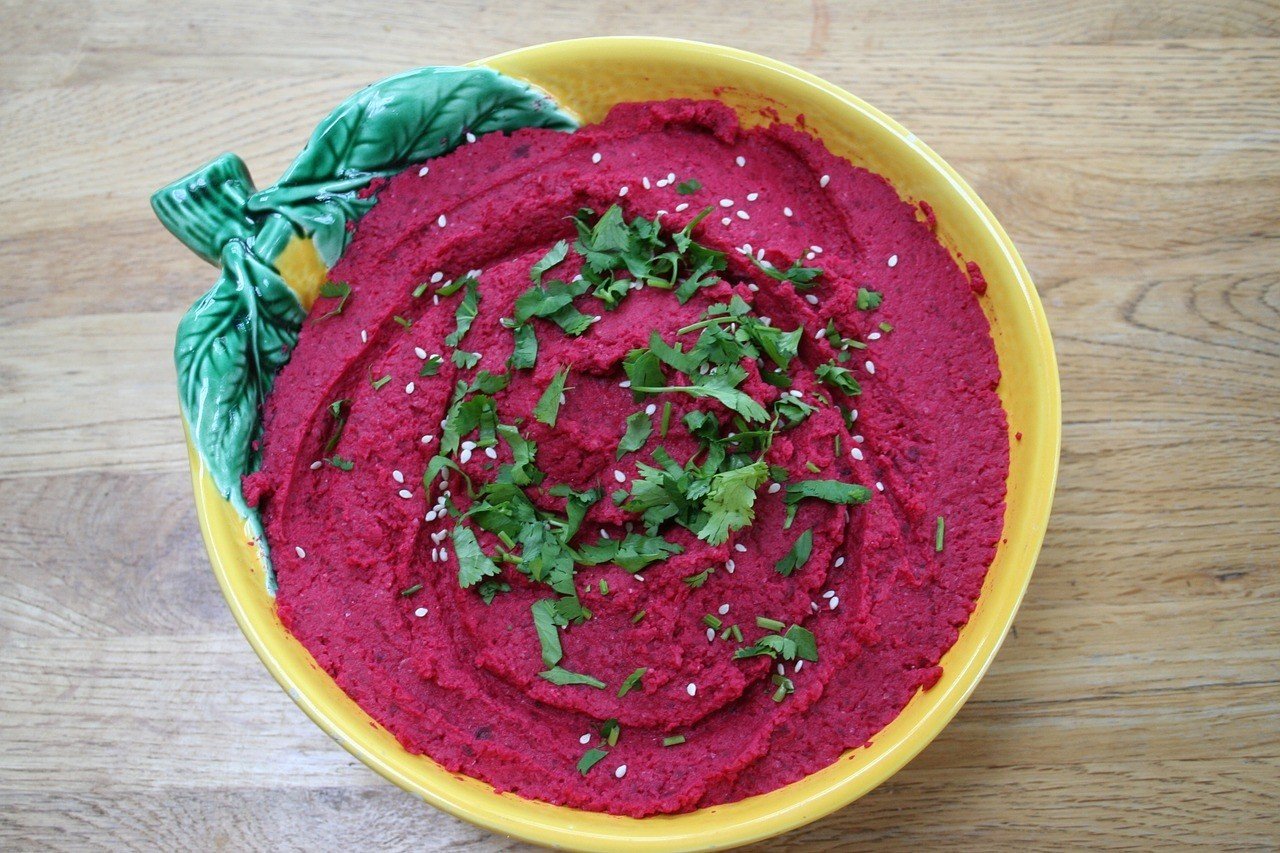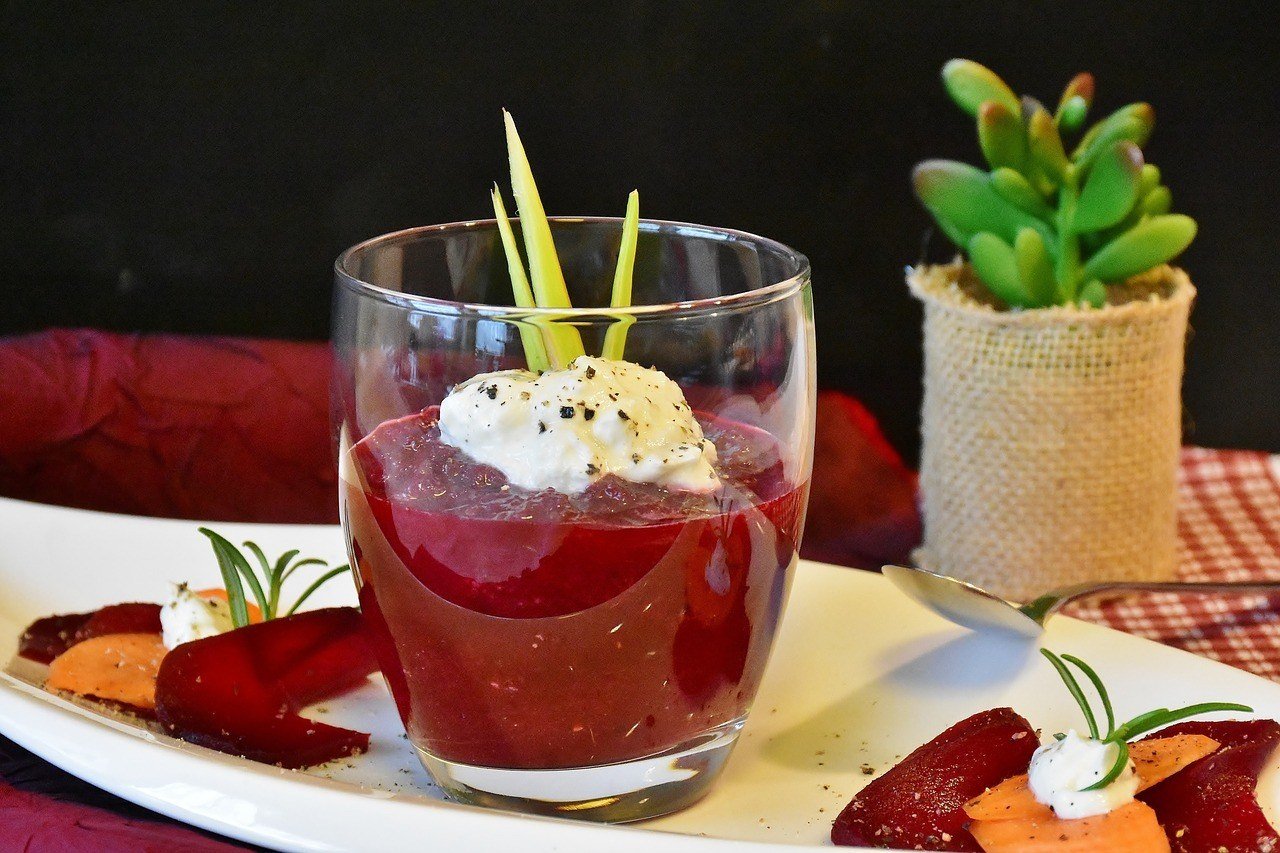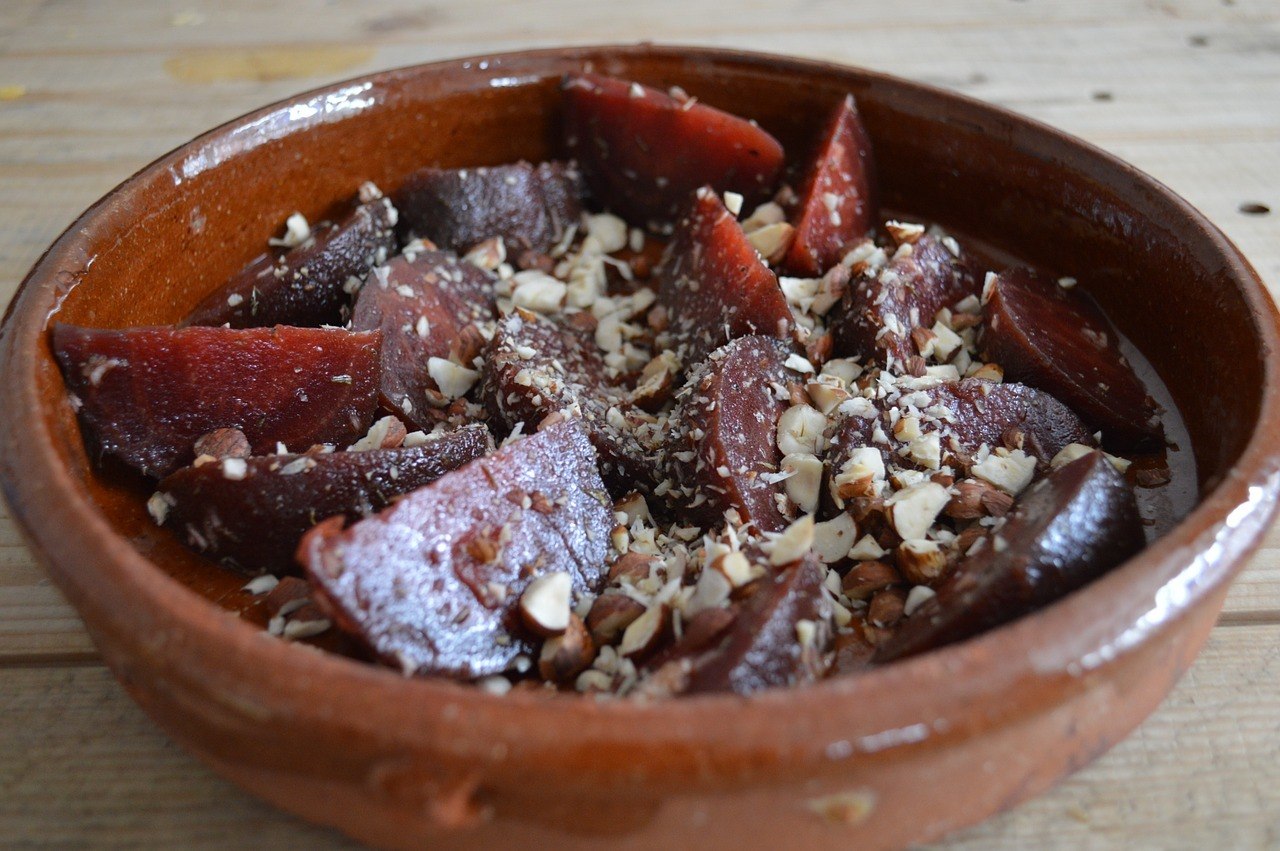It is now growing in popularity, but its origins can be traced back to 4,000 years ago. In prehistoric times, beet grew wild in North Africa, and coastal regions of Asia and Europe, and people used to consume its greens, and not the root. It is believed that the ancient Romans were the first to cultivate it and used the root as the part of their diet. Later, during the 19th century, it was realized that sugar can be made from beets. Today beet is being commercially grown worldwide in countries such as USA, Russia, France and Poland. In addition to being used to make sugar, beet is increasingly being consumed in the whole form due to many health benefits confirmed by the scientific research.
What nutrients can we find in beet?
Beet is a great source of various nutrients, such as fibers, vitamins and minerals and it is also low in calories. 100 grams of raw beets contain [1]:
2.8 grams of fiber 1.6 grams of protein 27% DV of folates 14% DV of manganese 10% DV of iron 7% DV of potassium
Moreover, beet contains B-complex vitamins, vitamin C, flavonoid anti-oxidants, and vitamin A.
What are the health benefits of Beet?
This great vegetable can be beneficial for many aspects of your health, such as blood pressure, and keeping your heart and liver healthy.
Beet helps you regulate your blood pressure
A study published in Hypertension [2] has indicated that consuming beetroot juice leads to significantly lower blood pressure. Beet can help lower your high blood pressure, due to the fact that it contains a high amount of nitrates which lead to relaxation of blood vessels, and consequently improve circulation.
Beet boosts your stamina
Besides lowering blood pressure, nitrates found in beetroot enable better athletic performance and better endurance as they improve muscle oxygenation while you perform physically intense activities. According to a study conducted on cyclists [3], it was proven that they could pedal 15% longer when they drank beet juice.
Beet improves liver function
Beet contains betaine, which is an amino acid, that has been proven [4] to help promote liver health as it reduces the fat in liver, increases the level of detoxifying enzymes and reduces liver size in people with diabetes.
Beet can help prevent cancer
The red color of beet comes from the pigment betacyaninis, but it is responsible for so much more. Studies indicate [5] that this pigment can suppress cancer cells growth and thus is successful in fighting various types of cancer.
Beet is good for your brain
As we get older, the neuron activity in our brains diminishes as the blood flow to brain decreases. Luckily, consuming beet helps relax blood vessels and in return brings more blood to the brain, thus improving its function. A study conducted at Wake Forest University [6] showed that drinking beetroot juice can slow the progression of dementia by increasing oxygenation.
Beet has anti-inflammatory properties
Beet contains betaine compounds which can fight inflammation when activated in the body. Anti-inflammatory properties of beet have been confirmed in a study conducted by Greek researchers [7] which indicated that betaine from beet reduced inflammation markers.
Beet helps keep your digestive system healthy
As it is rich in fiber, beet can help you in keeping your digestive track healthy and to avoid constipation.
Are there any side effects when consuming beet?
Beet is generally regarded as safe, yet women who are pregnant or breastfeeding should consume it in prescribed quantities. For some people, consuming beet may cause their urine to turn pink or red, and as beet lowers calcium levels, it can cause kidney damage in larger quantities.
How to eat beet
When buying beet, it is better to purchase organically grown one. Buy younger, smaller beets if you wish to avoid peeling, and also make sure the beet you are buying don’t have bruises or spots. You can keep it in refrigerator for up to 3 weeks and take it out when you want to prepare a delicious healthy meal. You can eat raw beet, in a salad combined with other vegetables. Also, you can steam, boil, roast, pickled, add it in your dessert or make your own beetroot juice. Anyway you eat it, you will feel health benefits, so choose the method of cooking that suits your taste.
Delicious beet recipes
You can eat beets in salads, soups, or even desserts!
Beet Salad with Goat Cheese
This is a delicious salad that can be turned into a meal if you add chicken into it. It takes very little time to prepare, and you will enjoy this super healthy salad.
Beat and Pear Puree
If you are looking for a tasty and healthy side dish with your turkey or pork roast, this beat and pear puree is the perfect answer. If you are busy, you can make it earlier and just preheat it before eating.
Beet and Buttermilk Soup
This creamy and mouthful soup will make you feel energized and refreshed. It is both of rich color and taste.
Roasted Beets with Feta
This is the perfect and easy-to-make side dish and it tastes best when made with fresh beets from the local farmer’s market.
Rich Beet Chocolate Cake
Yes, you can make yummy desserts with beats too, such as this delicious moist chocolate cake. You would never guess when looking at it that it’s made from beets!
How much beets is enough?
How much beet is healthy to consume depends on your age and health conditions. There is yet no concrete scientific research concerning recommended range of dosage, but if you are not sure how much you can consume, consult your doctor. Featured photo credit: https://pixabay.com/ via pixabay.com





